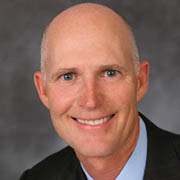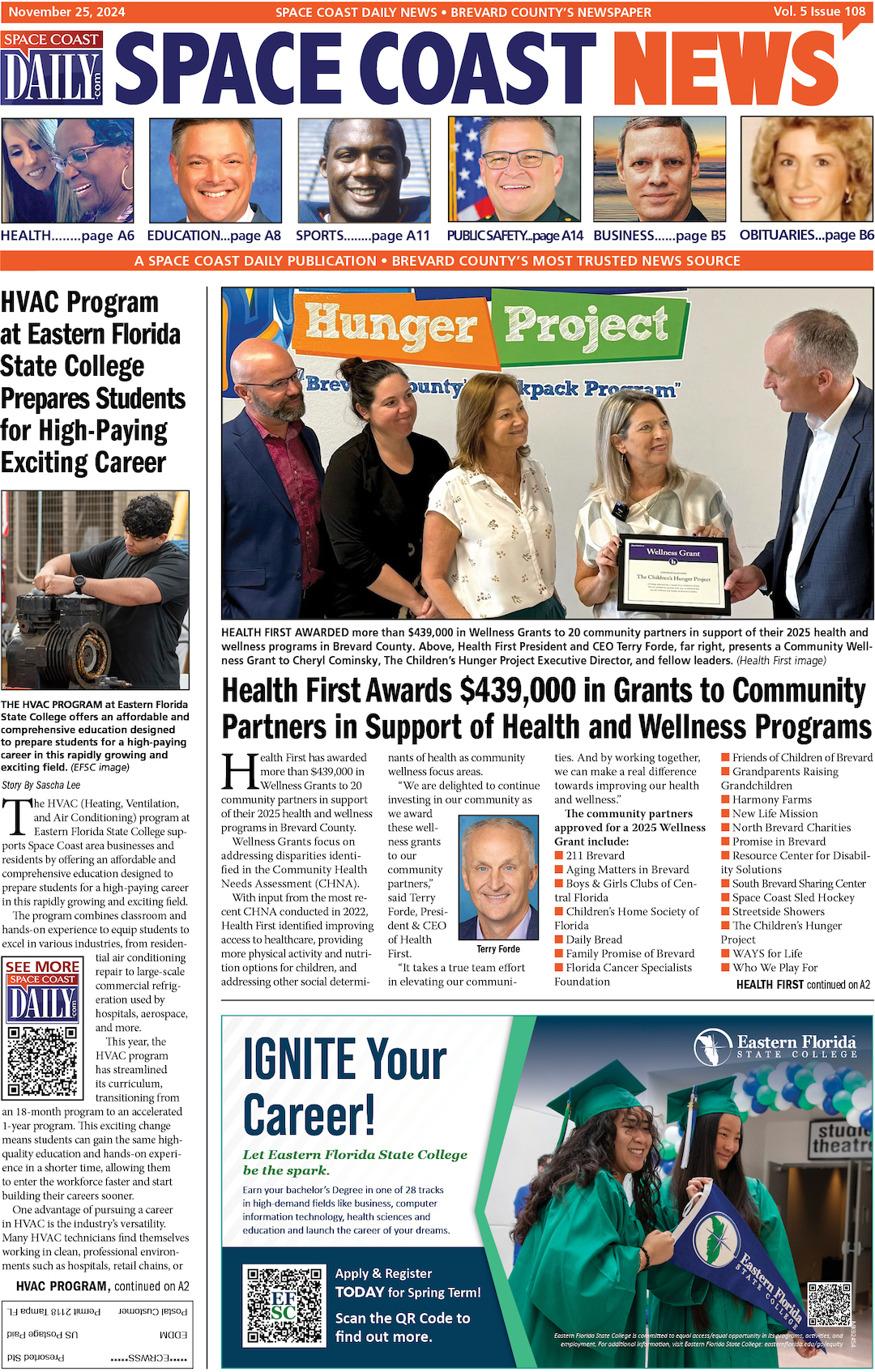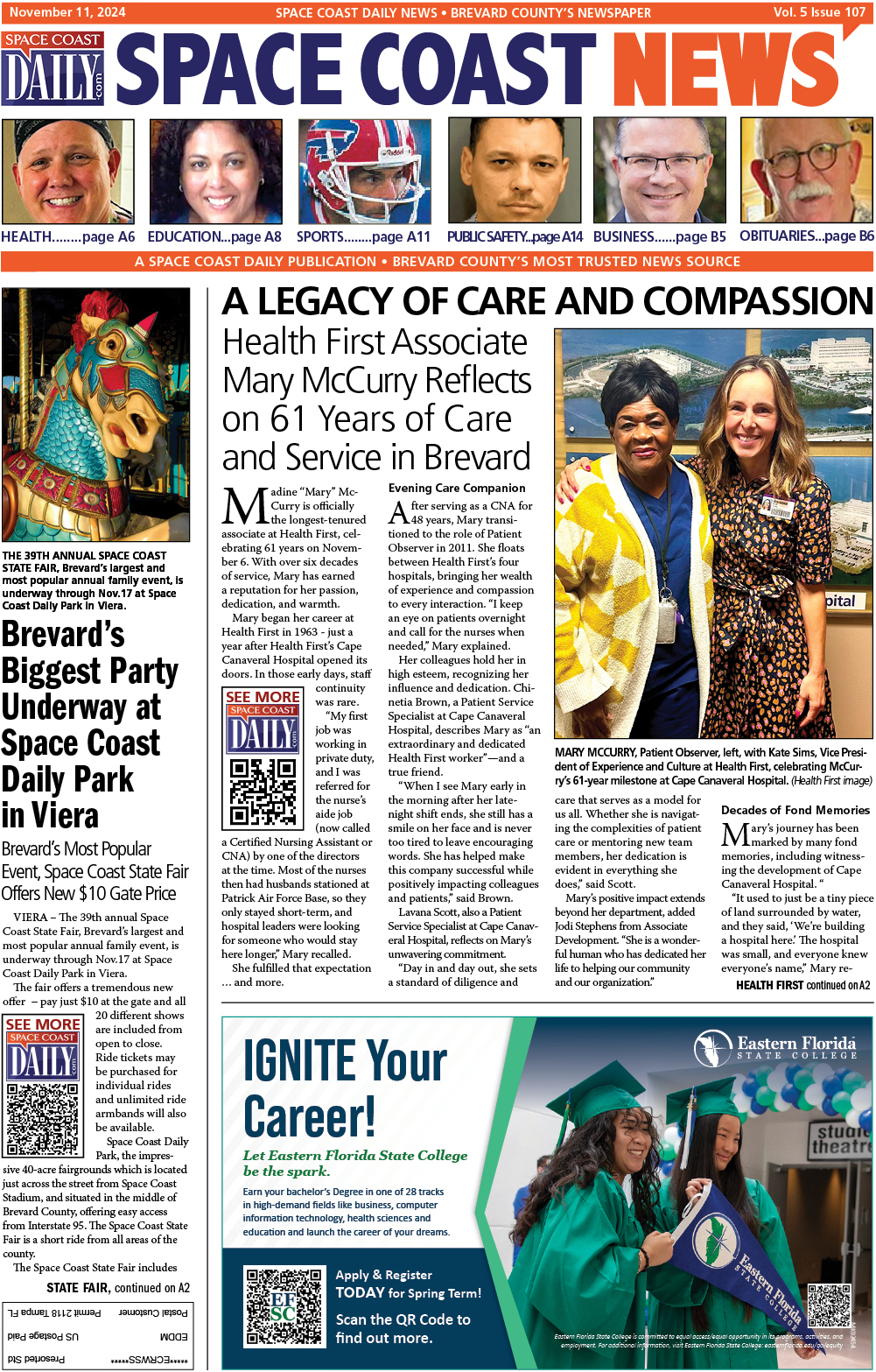Florida Judge Gets Request To Allow Gay Marriages
By Space Coast Daily // October 7, 2014
TALLAHASSEE, FLORIDA — Pointing to a “pathbreaking development” at the U.S. Supreme Court, attorneys for same-sex couples quickly asked a federal judge Tuesday to move forward with ending Florida’s ban on gay marriage.
U .S. District Judge Robert Hinkle in August found that Florida’s voter-approved ban was unconstitutional but placed a stay on the decision while the Supreme Court considered similar cases from other states. Justices on Monday declined to hear those cases, immediately clearing the way for same-sex couples to marry in Virginia, Oklahoma, Utah, Wisconsin and Indiana.
.S. District Judge Robert Hinkle in August found that Florida’s voter-approved ban was unconstitutional but placed a stay on the decision while the Supreme Court considered similar cases from other states. Justices on Monday declined to hear those cases, immediately clearing the way for same-sex couples to marry in Virginia, Oklahoma, Utah, Wisconsin and Indiana.
Hinkle ruled in two combined cases, including a case filed by the American Civil Liberties Union of Florida on behalf of same-sex couples who live in Florida but were married in other states. In a five-page motion filed Tuesday in U.S. District Court in Tallahassee, ACLU attorneys asked Hinkle to lift the stay and wrote that Monday’s decision sent a “strong signal that any remaining doubt about the Supreme Court’s ultimate resolution of the legal issue does not justify continuing to deny recognition of same-sex couples’ valid out-of-state marriages.”
“The Supreme Court’s action yesterday shows that the Supreme Court has decided to let stand decisions — like this court’s (Hinkle’s) — enjoining as unconstitutional state laws that refuse to recognize the marriages of same-sex couples,” the motion said.
Attorney General Pam Bondi, whose office has defended the state’s ban, said Monday during a campaign debate that there are additional cases that could reach the U.S. Supreme Court and “we’re going to be reviewing everything in Florida to see what to do next.”

Gov. Rick Scott issued a statement Tuesday pointing to the role of Bondi and the courts in resolving the issue. Florida voters approved the gay-marriage ban in 2008.
“The attorney general is defending Florida’s constitution, which is her duty,” Scott said in the statement. “This is a matter that will be decided by the courts. Whatever the eventual outcome is from the courts, Florida will of course abide with it.”
If Hinkle decides to lift the stay, it is not clear when same-sex marriages could start in Florida.
In his August ruling, Hinkle wrote that the stay would remain in place until resolution in the Supreme Court of the Virginia, Oklahoma and Utah cases, plus an additional 90 days. The additional 90 days would give Florida time to seek another stay, possibly from the 11th U.S. Circuit Court of Appeals in Atlanta or the Supreme Court.
Hinkle’s rationale, at least in part, was to make sure there is a final decision before same-sex marriage is allowed in Florida. He wrote that there “is a substantial public interest in implementing this decision just once — in not having, as some states have had, a decision that is on-again, off- again. This is so for marriages already entered elsewhere, and it is more clearly so for new marriages.”
But in the motion Tuesday, ACLU attorneys noted a line in Hinkle’s ruling that said the stay “may be lifted or extended by further order” and asked that the judge lift the stay immediately.
They pointed to “ongoing harms” from the state’s refusal to recognize same-sex marriages. As an example, the motion said a same-sex couple married in Washington, D.C., must pay hundreds of dollars a month for insurance because one of the spouses works for a public employer that does not recognize their marriage.
“If defendants are permitted to wait an additional 90 days to make arguments (they are) very well equipped to make in short order, the harms to these and other Floridians —harms that the court has already deemed to be irreparable — will only grow,” the motion said.
The ACLU attorneys said plaintiffs would not object to a seven-day period to allow the state to request a stay from the appeals court or the Supreme Court.













